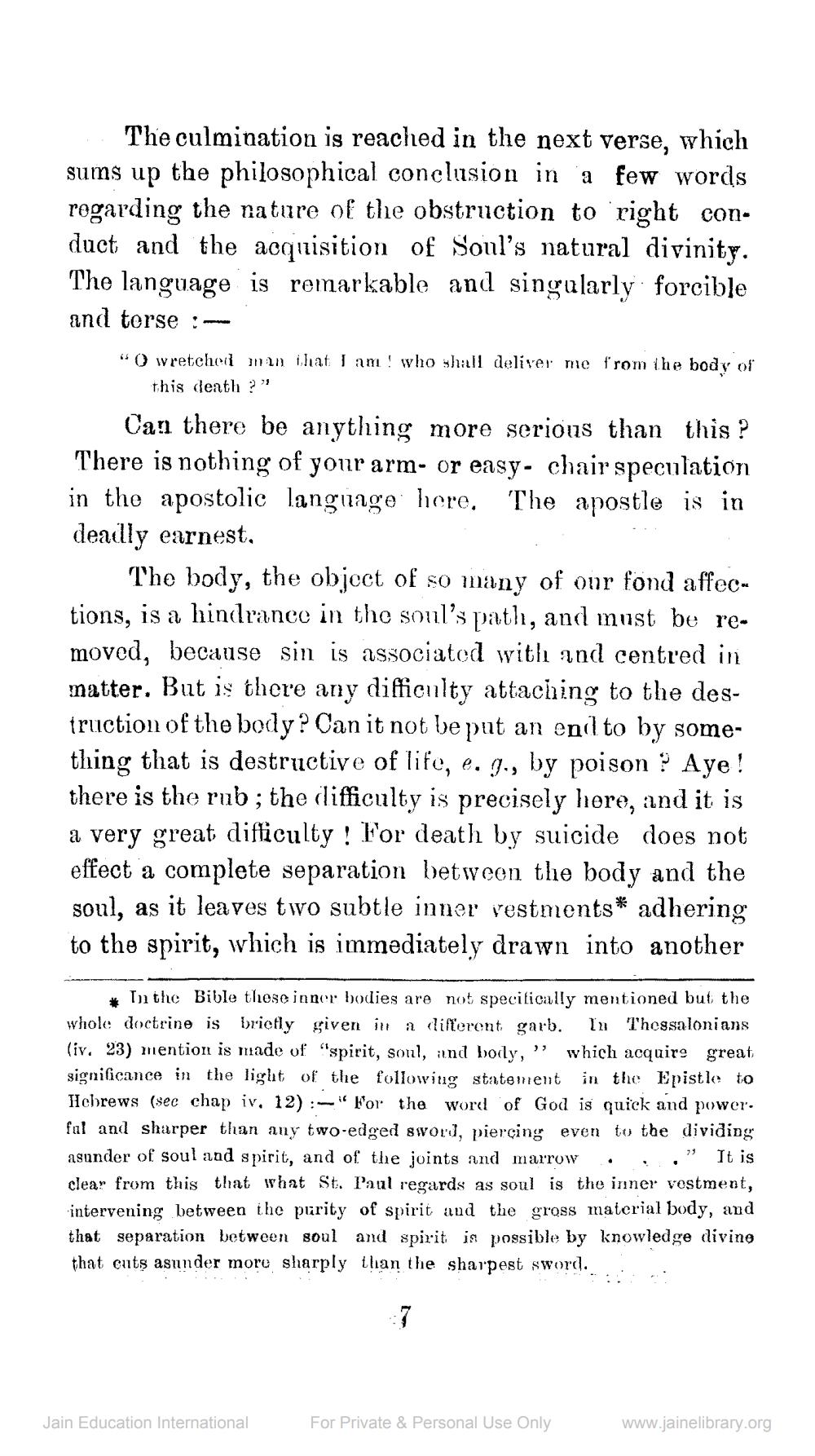________________
The culmination is reached in the next verse, which sums up the philosophical conclusion in a few words regarding the nature of the obstruction to right conduct and the acquisition of Soul's natural divinity. The language is remarkable and singularly forcible and terse: -
* () wretched man ihat I am! who shall deliver me from the body of
this death ?"
Can there be anything more serious than this? There is nothing of your arm- or easy- chair speculation in the apostolic language here. The apostle is in deadly earnest.
The body, the object of so many of our fond affections, is a hindrance in the soul's path, and must be removed, because sin is associated with and centred in matter. But is there any difficulty attaching to the desfruction of the body? Can it not be put an end to by something that is destructive of life, e.g., by poison ? Aye! there is the rub; the difficulty is precisely here, and it is a very great difficulty ! For death by suicide does not effect a complete separation between the body and the soul, as it leaves two subtle inner vestments* adhering to the spirit, which is immediately drawn into another
* t the Bible these inner bodies are not specifically mentioned but the whole doctrine is briefly given in a difterent garb. In Thessalonians (iv. 23) mention is made of "spirit, soul, ind body," which acquire great significance in the light of the following statement in the Epistle to Hebrews (sec chap iv, 12): For the word of God is quick and power. fal and sharper than any two-edged sword, piercing even to the dividing asunder of soul and spirit, and of the joints and marrow . . .” It is clear from this that what St. Paul regards as soul is the inner vestment, intervening between the purity of spirit and the gross material body, and that separation between soul and spirit is possible by knowledge divine that cuts asunder more sharply than the sharpest sword. :
Jain Education International
For Private & Personal Use Only
www.jainelibrary.org




